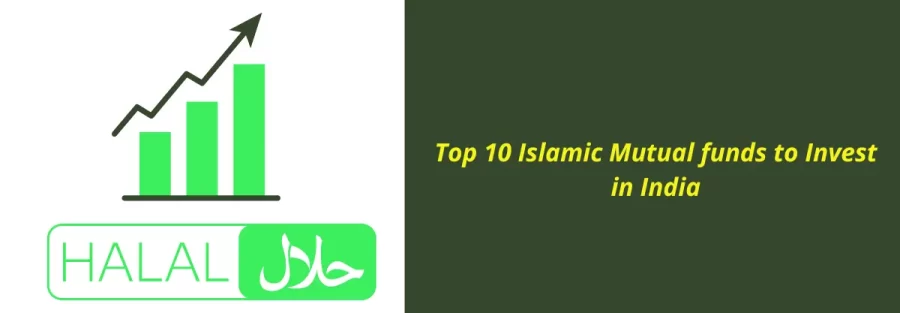Top 10 Islamic Mutual funds to Invest in India
The Islamic investment industry is one of the fastest growing sectors in the world. The industry is worth an estimated $2 trillion and is projected to reach $3 trillion by 2025. There are a number of reasons for this rapid growth, including the increasing global population of Muslims and the rising wealth of Muslim countries.
The Islamic investment industry is governed by a set of principles known as Shariah. These principles prohibit the use of interest, gambling, and speculation. Islamic investment products must also be backed by physical assets.
The Islamic investment industry is still relatively new, but it is growing quickly. There are a number of mutual fund companies that have launched Islamic products in recent years. In this article, we will take a look at the top 10 Islamic mutual funds to invest in India.
Why are Islamic mutual funds important?
Islamic mutual funds are an important tool for investors in the Islamic investment industry. They provide an alternative to the traditional banking and finance systems, which are based on interest and other forms of debt. By investing in Islamic mutual funds, investors can support Islamic businesses and industries, which, in turn, helps to promote economic growth and development. These funds also provide investors with the opportunity to earn returns without violating Shariah principles.
There are a number of Islamic mutual funds in India that specialise in a variety of markets and asset classes, thus providing investors with a wide range of options for investing.
What are the top 10 Islamic mutual funds to invest in India?
There are a number of Islamic mutual funds in India. These funds provide investors with the opportunity to invest in companies and industries that adhere to Shariah principles.
Here are the top 10 Islamic mutual funds to invest in India:
- Mahindra Islamic Mutual Fund
- ICICI Prudential Islamic Fund
- Kotak Mahindra Islamic Fund
- HDFC Islamic Fund
- Birla Sun Life Islamic Fund
- Aditya Birla Sun Life Islamic Fund
- Axis Islamic Fund
- SBI Islamic Fund
- DHFL Pramerica Islamic Fund
- Reliance Islamic Fund
How do Islamic mutual funds work?
Islamic mutual funds use a variety of asset classes such as equities, bonds, and commodities. These funds typically invest in a variety of companies or industries as per Shariah principles.
In addition, these funds may use a combination of direct and indirect investments depending on the strategy and objectives. The specific investment strategies used by these funds usually involve a combination of active and passive investment approaches. Active strategies include stock selection, sector allocation, and portfolio rebalancing. Passive strategies include index funds and exchange traded funds.
Why invest in an Islamic mutual fund?
Investing in Islamic mutual funds plans can provide investors with a number of benefits.
One of the most attractive benefits is the performance potential of these mutual funds plans. As these funds invest in asset classes that follow Shariah principles, they tend to outperform the traditional banking and finance industry.
Additionally, as these funds are actively managed, they can provide investors with more attractive returns than more passive investments.
Another attractive benefit is the fact that investing in Islamic mutual funds can help to promote ethical investments. As these investments are guided by the principles of Shariah, they are more socially responsible. For example, these funds often invest in companies that strive to contribute positively to society, without damaging the environment.
What are the benefits of investing in an Islamic mutual funds plans?
Investing in Islamic mutual funds plans can provide investors with a number of benefits.
Firstly, these mutual funds plans follow Shariah principles and are socially responsible. This means that investors can support ethical businesses and industries, which can contribute positively to the global economy.
Another attractive benefit of investing in Islamic mutual funds plans is the performance potential. These funds are actively managed and can often outperform the traditional banking and finance industry.
Additionally, these funds have the potential to provide investors with returns that are more attractive than more passive investments.
How to choose the top mutual funds to invest in India that follow Islamic investing approach?
Choosing the top mutual funds to invest in India for you can be a daunting task. However, there are a few key considerations that can help make the process easier.
Firstly, it is important to understand your investment goals and risk tolerance. Knowing these can help to narrow down the list of top mutual funds to invest in India that may be suitable for you.
Secondly, it is important to understand the track record of the fund manager. Researching the performance of the fund manager can give you a better understanding of the fund’s risk and return potential.
Thirdly, it is important to research the fees and charges associated with the fund. Comparing the fees and charges of different funds can help you determine which one offers the best value for money.
Lastly, it is important to read the fund’s prospectus carefully. This will provide you with an understanding of the fund’s strategies and objectives.
Conclusion:
Investing in Islamic mutual funds plans can provide investors with a number of benefits. These funds are guided by the principles of Shariah and can provide investors with the opportunity to support ethical businesses and industries. Additionally, these funds are actively managed and can often provide investors with attractive returns. When choosing an Islamic mutual fund, it is important to research the track record of the fund manager and read the prospectus carefully. This can help you to determine which fund is the right fit for you. Overall, investing in Islamic mutual funds can be a rewarding experience that can benefit both you and the global economy.


